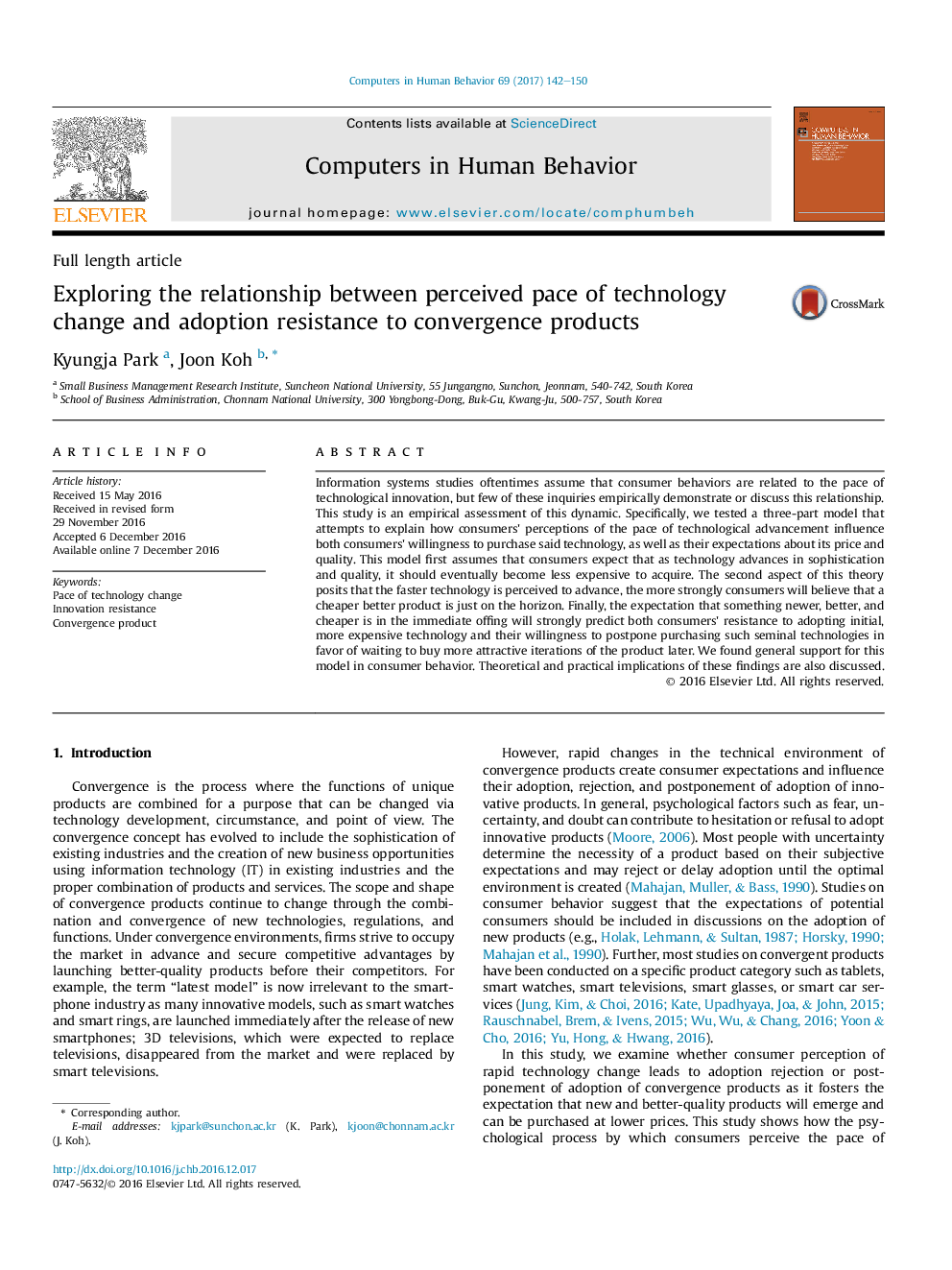ترجمه فارسی عنوان مقاله
بررسی ارتباط بین سرعت درک پذیری تغییر تکنولوژی و مقاومت پذیرش در برابر محصولات همگرا
عنوان انگلیسی
Exploring the relationship between perceived pace of technology change and adoption resistance to convergence products
| کد مقاله | سال انتشار | تعداد صفحات مقاله انگلیسی |
|---|---|---|
| 113660 | 2017 | 9 صفحه PDF |
منبع

Publisher : Elsevier - Science Direct (الزویر - ساینس دایرکت)
Journal : Computers in Human Behavior, Volume 69, April 2017, Pages 142-150
ترجمه کلمات کلیدی
سرعت تغییر تکنولوژی، مقاومت نوآورانه، محصول همگام سازی،
کلمات کلیدی انگلیسی
Pace of technology change; Innovation resistance; Convergence product;
ترجمه چکیده
مطالعات سیستم های اطلاعاتی اغلب فرض می کنند که رفتار مصرف کننده با سرعت نوآوری های تکنولوژیکی مرتبط است، اما تعداد کمی از این تحقیقات تجربی نشان می دهد یا درباره این رابطه بحث می کنند. این مطالعه یک ارزیابی تجربی از این پویایی است. به طور خاص، ما یک مدل سهبعدی را مورد آزمایش قرار دادیم که تلاش می کند توضیح دهد که چگونه ادراک مصرف کنندگان از سرعت پیشرفت تکنولوژیکی، تمایل مصرف کنندگان به خرید فن آوری گفته شده، و همچنین انتظارات آنها نسبت به قیمت و کیفیت آن را تحت تاثیر قرار می دهد. ابتدا این مدل فرض می کند که مصرف کنندگان انتظار دارند که با پیشرفت تکنولوژی در پیچیدگی و کیفیت، در نهایت ارزان شود. جنبه دوم این نظریه مطرح می کند که فن آوری سریع تر درک شده است برای پیشبرد، مصرف کنندگان قوی تر معتقدند که یک محصول ارزان تر بهتر است فقط در افق. در نهایت انتظار می رود که چیزی جدیدتر، بهتر و ارزانتر در خلال فوری باشد، مقاومت شدید مصرف کنندگان به اتخاذ تکنولوژی ابتدایی و گرانقیمت و تمایل آنها به تعویق افتادن خرید چنین فن آوری های هسته ای به نفع انتظار برای خرید تکرارهای جذاب تر بعد محصول ما حمایت عمومی از این مدل را در رفتار مصرف کننده پیدا کردیم. مفاهیم نظری و عملی این یافته ها نیز مورد بحث قرار گرفته است.

